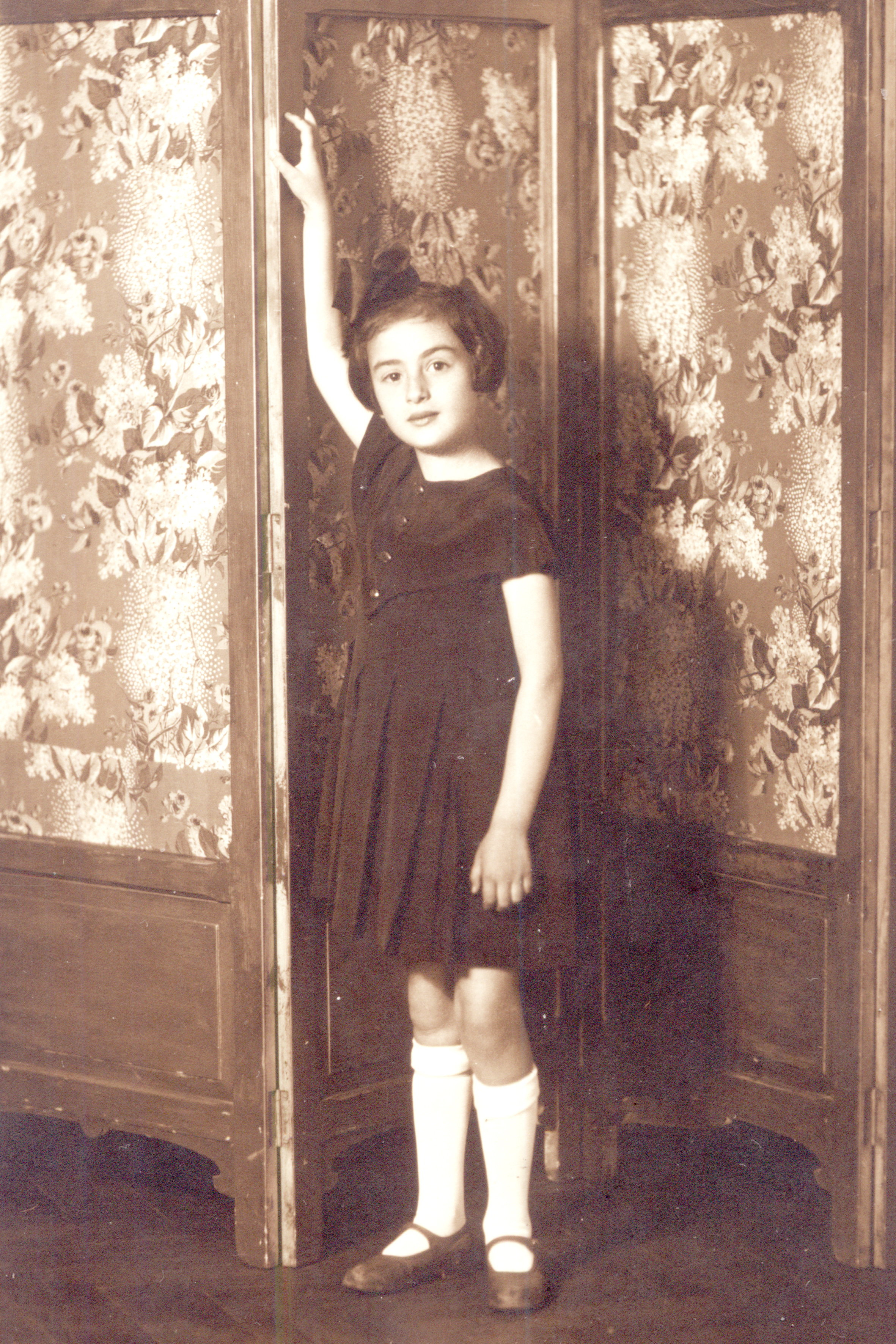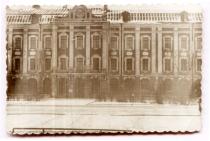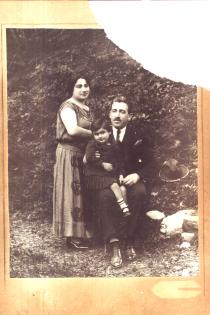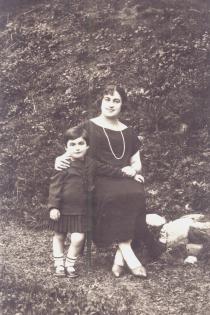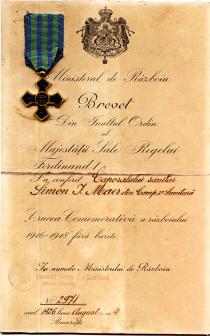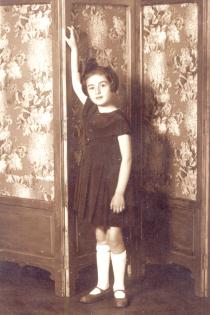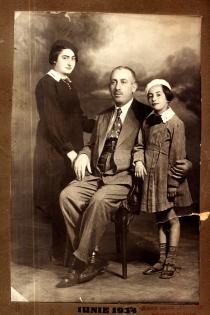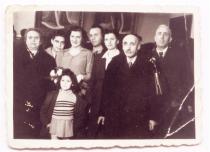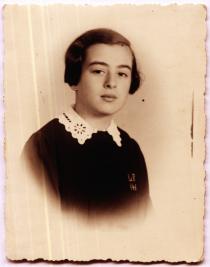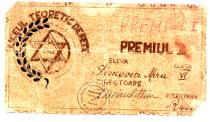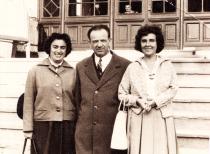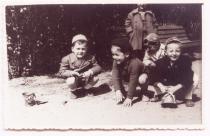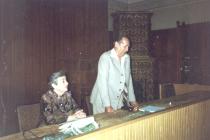This is me, Mira Tudor. God knows how old I was - not more than 10, anyway. I was wearing a nice, red dress and a red bow on my head. My mother felt like taking me to the photographer - it was no special occasion. She used to do that from time to time. People didn't own cameras back then.
My parents were very austere. No kissing, no saying 'I love you', no hugging. I'm not sure I ever saw them kissing. They didn't kiss us too often either. Grandma sometimes called me Caralinda, which means 'my dear' in Ladino or something like that. I was Caralinda.
I wasn't allowed to go to the cinema. I shed bitter tears and begged my father to take me, but he was always tired after having spent the entire day at the store. He only came home to eat. He worked hard and he liked to keep the place clean. If the boys didn't sweep the floors well, he did it himself, so that the customers would be pleased. On Sunday, he was dead beat and felt like sleeping. And I cried: 'Let's go to the cinema, father!' I remember this film called 'In Old Chicago' [1937], starring Alice Faye. I bought the 'Cinema' magazine and had read about it. Ramnicu Valcea had one of the first cinemas in the country. It was build by an Italian, in 1920 or maybe even earlier. As far as I'm concerned, it had been there for as long as I could remember. It had a hall, a row of ground-floor boxes, and a row of boxes at the upper floor. My father would take me by the hand and we would enter a box. He would hide in a corner and doze. And he even snored sometimes. 'Father, you are embarrassing me! Stop snoring!' - 'I'll never come here with you again if I'm not even allowed to snore!' So I let him snore, hoping we would come again.
Then there were the theater tours. A great actor of the National Theater [in Bucharest] Ion Iancovescu was from Ramnicu Valcea. [Ed. note: Ion Iancovescu (1889-1966), actor who became famous in the interwar period, a time when a new conception on art was formed, and when tradition and modernism were combined.]. He came from a noble family who had renounced him because he had become an actor. Much later, when he came on tour with the theater in Ramnicu Valcea, they invited him to dinner, because they had partially forgiven him. Fintesteanu came too [Ed. note: Ion Fintesteanu (1899-1984), actor who became famous in the interwar period.]. We weren't allowed to go to the theater - this would have got us expelled. If we had been caught at the cinema, we would have got expelled too or banned for a week. But if my father took me, it was okay. We weren't allowed to go there by ourselves. There was the officers' ball, and all the youth was there. But we didn't go, because we weren't old enough at the time.
